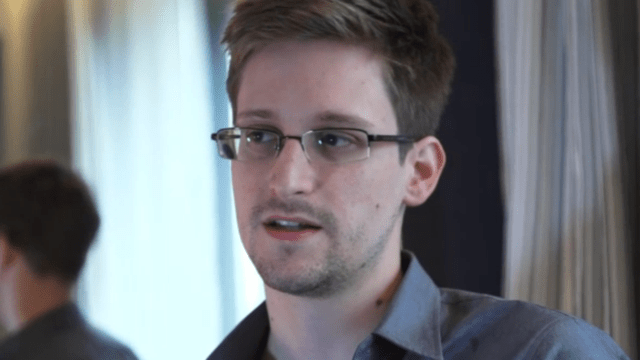The Washington Post has published the first interview with Edward Snowden since the initial wave of press after the 30-year-old former analyst’s leaks this summer. His main theme: Edward Snowden done good.
This is not to say that Snowden doesn’t deserve the praise. The Washington Post makes it very clear in nearly 4,500 words of reporting that, thanks to Snowden’s leak, the NSA “faces scrutiny it has not endured since the 1970s, or perhaps ever.” Indeed, just last week, a federal judge called the NSA’s surveillance efforts “almost Orwellian” and also probably unconstitutional. President Obama’s even changed his tune, and now says that the agency is threatening American business online.
After a set up worthy of a spy movie, The Washington Post gets right to the point. Edward Snowden won. In the exiled whistleblower’s own words:
For me, in terms of personal satisfaction, the mission’s already accomplished. I already won. As soon as the journalists were able to work, everything that I had been trying to do was validated. Because, remember, I didn’t want to change society. I wanted to give society a chance to determine if it should change itself.
Maybe not the best choice of words? The last time “mission accomplished” got this much play it was in a speech on an aircraft carrier. And the mission was anything but.
It also downplays the fact that the battle’s actually far from over. The federal judge who suggested that the NSA’s surveillance might be unconstitutional is just the first of many moving parts that have to change the way this country’s spy programs work. Obama has changed his rhetoric, but he still hasn’t really done anything to clamp down on unwarranted surveillance. Edward Snowden himself remains a forbidden from returning home.
But again! Snowden did a good thing for America. Our own spies were spying on us, and he gave the press the evidence to prove it. Let’s also not forget that thousands of Snowden documents have not been published, so who knows how far the government’s bad behaviour goes. He continues:
All I wanted was for the public to be able to have a say in how they are governed. That is a milestone we left a long time ago. Right now, all we are looking at are stretch goals.
Snowden goes on to describe how he talked to his NSA coworkers about the malfeasance — the NSA says there’s no record of these conversations — and the coworkers agreed with him. Meanwhile, other reports say that he tricked coworkers into giving him access to classified documents. But it wasn’t these coworkers that encouraged him to leak, Snowden said:
I am not trying to bring down the NSA, I am working to improve the NSA. I am still working for the NSA right now. They are the only ones who don’t realise it.
That whole question — who elected you? — inverts the model. They elected me. The overseers.
Snowden explains to the Post how Dianne Feinstein and Mike Rogers “elected [him]” by not asking hard questions and exposing abusive programs. That’s an interesting metaphor and also a really strong point about how Congress just let this bad NSA behaviour happen.
We inevitably have to take Snowden’s words at face value. He leaked the documents and then stepped into the shadows. There is something admirable about that. He’s not yet trying to step forward and become a celebrity activist for privacy and freedom of information. In his own words, he’s just an “indoor cat” hanging out in Russia. It’ll really be time for a victory lap when he can finally come home.
The full interview is well worth reading; head over to the Washington Post to check it out. [Washington Post]
